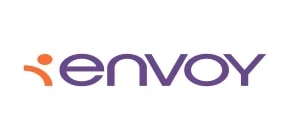The H-1B visa is designated for individuals working in a specialty occupation, which is defined as the position requiring at least a bachelor's degree in a specific or related field (or its equivalent) and that the foreign national being sponsored has at least a bachelor's degree in that specific or related field (or its equivalent).
Examples of Specialty Occupations:
- Biotechnology
- Education
- Engineering
- Computer Sciences
- Management
- Medicine
- Many more
H-1B Requirements
The position requiring at least a bachelor's degree in a specific or related field (or its equivalent).
In addition, individuals must have completed a bachelor's degree or its equivalent in a field of study related to the position. If the individual obtained the degree overseas, or it is not a four-year bachelor's degree, an education evaluation must be completed to verify that through education or experience the individual has the equivalent of a bachelor's degree.
Additionally, the salary for the position must meet minimum prevailing wage requirements.
H-1B Initial Period of Stay
The initial period of stay for an H-1B visa holder in the U.S. is typically three years.
H-1B Renewal
After the initial period of stay, the employer may file a renewal or extension for the H-1B employee. This should extend the stay by up to three more years. H-1B visa holders may stay in the U.S. for six years in H-1B nonimmigrant status.
H-1B holders who have completed select portions of the green card application process may be able to extend their status beyond the six-year max-out date.
H-1B and Green Card
We recommend that you speak to your attorney if the temporary nature of the assignment changes.
H-1B Petition and Filing Fees
As of June 2020, these are the current H-1B fees:
- Petition filing fee: $460 - $2,640
- Premium Processing: Employers can choose to pay the $1,440 premium processing fee when available. USCIS will then adjudicate the H-1B petition-meaning they are required to approve, issue a request for evidence or deny the petition-within 15 calendar days.
The H-1B Lottery
Most first-time H-1B petitions are subject to the annual visa lottery. Annually, the government issues 85,000 total visas. This number is broken down into two groups: 20,000 visas are reserved for H-1B beneficiaries with master's degrees and 65,000 are for everyone else.
The lottery used to be held annually every April. However, USCIS has implemented new changes. In late 2019, USCIS announced it would implement its brand-new H-1B Electronic Registration System for the FY 2021 H-1B lottery.
This system involves major changes, starting first with employers having to electronically register and pay an associated $10 registration fee. Employers need to electronically register for advanced degrees as well.
Under this new registration process, employers submit basic information about their organization and each requested worker. USCIS will then open an initial registration period of March 1 - March 20. USCIS will then notify petitioners who were selected. At this point, USCIS provides detailed instructions to complete the registration process, including key dates and timelines.
Another important change is the order in which USCIS selects electronic registrations. USCIS now selects master's registrations first before moving onto the regular cap. USCIS first implemented this process adjustment during the FY 2020 H-1B lottery.
H-1B Cap Exemption
The sponsored position must be one of the following in order to qualify for an exemption from the H-1B cap lottery:
- Institutions of higher education
- Non-profit research organizations
- Government research organizations
- Primary or secondary education institutions
- Non-profit entities that engage in established curriculum-related clinical training
Additional examples where cap exemption applies include petitions for changes of employer, an extension with the same employer, amendment petitions with no request for extension and corrections of a previously approved H-1B of service errors. These situations typically arise when the H-1B nonimmigrant has already received H-1B nonimmigrant status through the cap lottery process.
Originally published 20 August 2020
The content of this article is intended to provide a general guide to the subject matter. Specialist advice should be sought about your specific circumstances.

